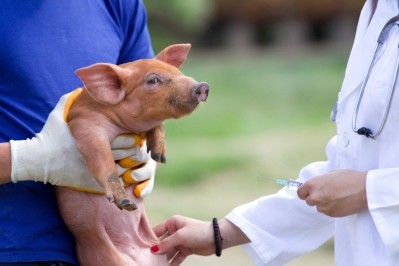FDF backs government work on antimicrobial resistance

The Food and Drink Federation (FDF) called for its members to keep up-to-date with food hygiene recommendations following the FSA report.
“FDF ensures that members stay abreast of the advances in science that change our understanding of food hygiene issues so that members may continue to operate to high quality standards,” said an FDF spokesman.
The FDF said it was supportive of the work being done to improve understanding of AMR, and recognised it was a complex issue.
30M chickens
The FSA report found that around 30M chickens were sold with campylobacter in 2014 that were resistant to three or more antimicrobials. It outlined the role food played in the spread of antimicrobial resistance (AMR).
While AMR cannot be completely prevented, it can be reduced by implementing safety procedures across the entire food supply chain, the FSA report said.
The FSA’s chief scientific advisor and author of the report Guy Poppy said: “Antimicrobial resistance means that it’s harder – or impossible – to treat an increasing range of infections.
“It has been estimated that by 2050 it could be causing the deaths of 10M people a year across the world, not to mention US$100tr in cumulative lost economic output.”
‘Causing the deaths of 10M people a year’
The risk of spreading AMR microbes could be reduced by good hygiene practices, the report said. This included thoroughly washing fruit and vegetables before consumption, and cooking food all the way through. The FSA suggested following the ‘4Cs’ to avoid spreading AMR microbes: cleaning, cross-contamination (avoid), cooking and chilling.
“The FSA works to protect consumer interests in relation to food, so the role that food plays in the problem of antimicrobial resistance is of concern,” said Poppy.
“We need a holistic approach throughout the food supply chain, and to understand how a whole range of practices, such as how we care for farm animals, handle food or irrigate crops, might affect the spread of antimicrobial resistance to our food, and ultimately to us.”
Meanwhile, global leaders pledged to address the growing threat of AMR at the 71st meeting of the UN General Assembly on September 21. The meeting was just the fourth time the UN had held a General Assembly to discuss a health issue.
FSA 4Cs recommendation for reducing risk of AMR
- Cleaning
- Cross-contamination (avoid)
- Cooking
- Chilling
















